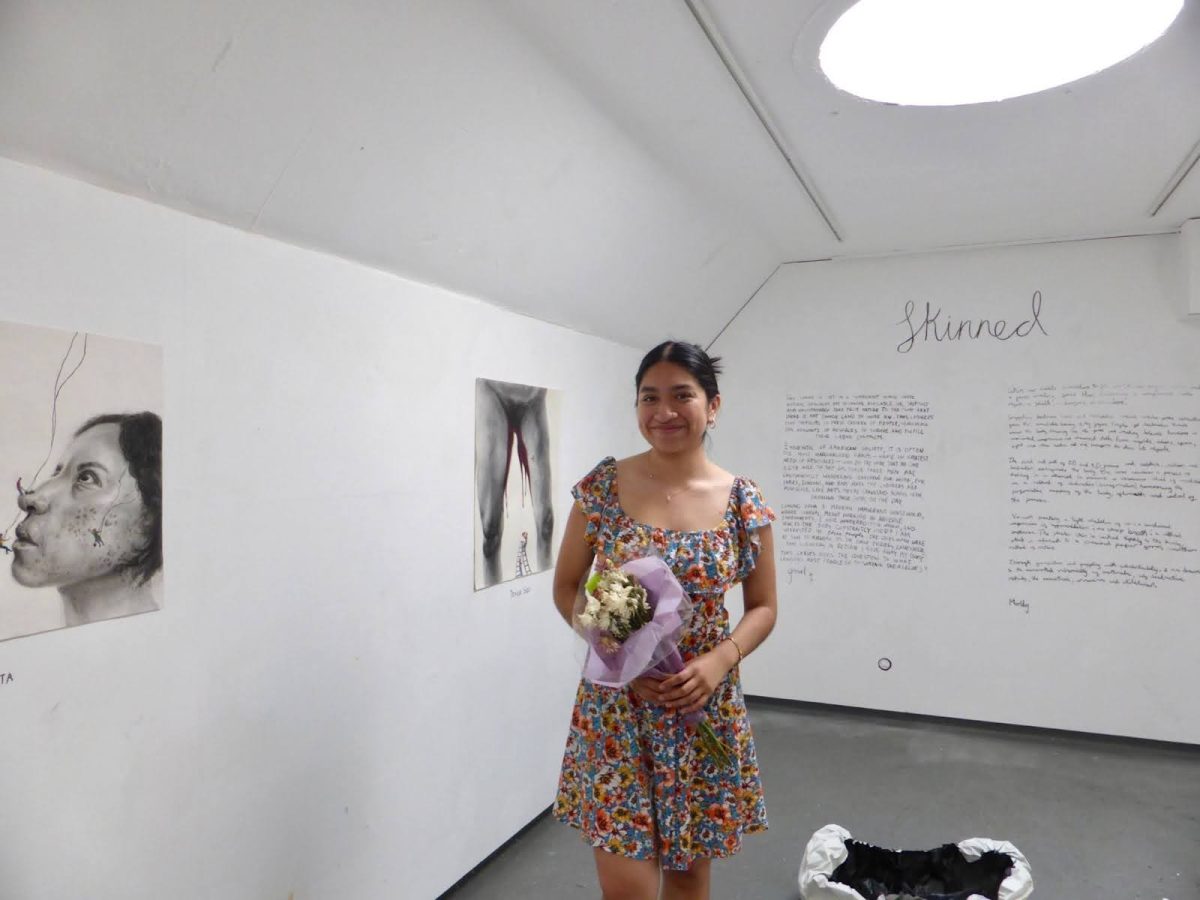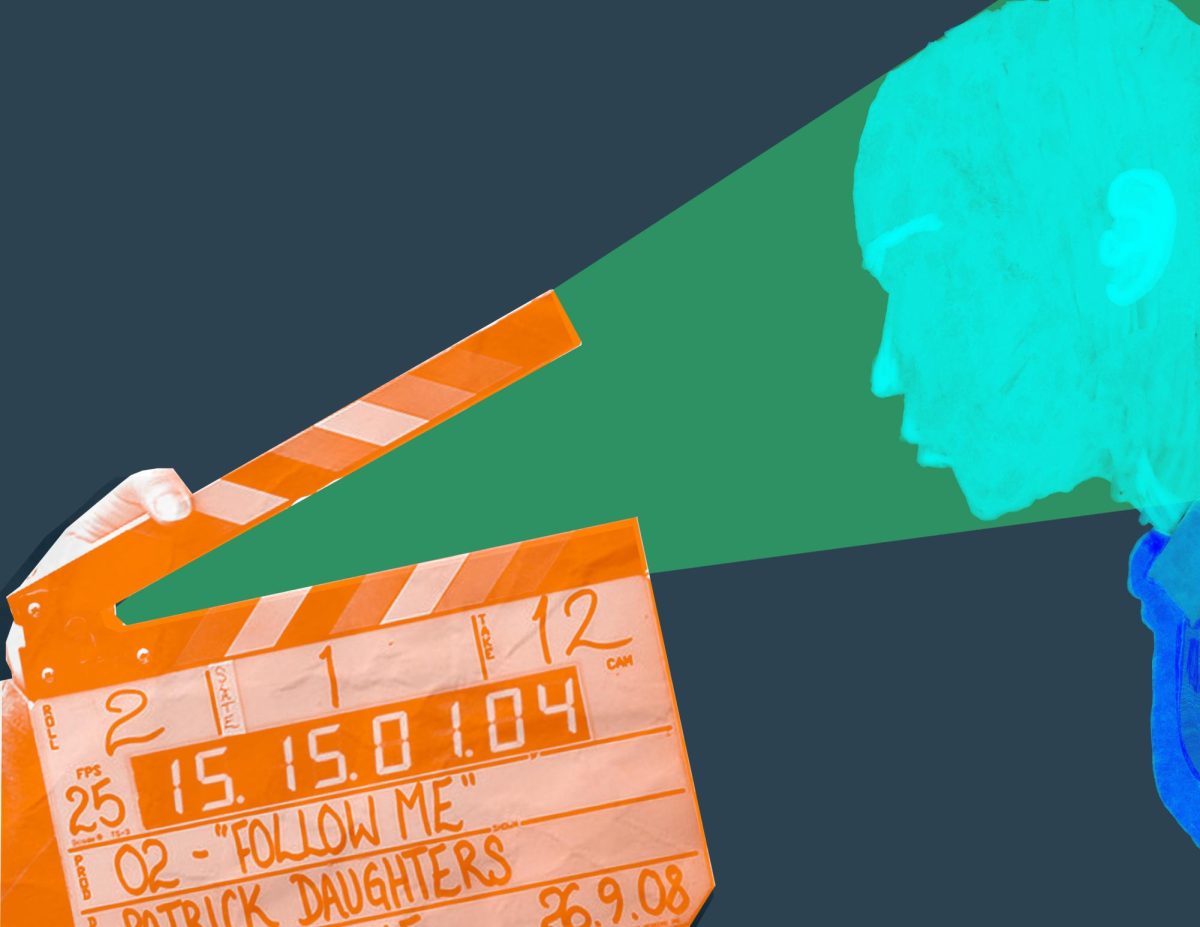
I sat down with Brandon Hilfer ’20 to learn more about his music thesis, an original opera titled “Actaeon, or the Hunter,” adapted from a story in Ovid’s “Metamorphoses” The piece will be performed May 9 at 7:30 pm in The Directing Studio.
Tali Natter (TN): What has been your experience with music at Williams?
Brandon Hilfer (BH): I came to Williams intending to be a music major but not sure exactly how it would fit into my life here. Slowly, as I spent more time in the classroom and in my composition classes, I found it really becoming a form of expression for me to articulate my thoughts and feelings, and also as a way to kind of relax from everything that’s going on being a college student. But of course, that then becomes complicated when it becomes academic. So I’ve been figuring out how to balance making art for myself and making art for the classroom. I think that’s where this project came from; a desire to challenge myself as an artist and writer beyond what a music thesis is ‘supposed’ to be.
TN: What is a typical music thesis? How did you decide to write an opera?
BH: You can do a performance thesis where you put together a recital and write a paper. You can do a musicology thesis, which is a long music history paper, and then there’s a composition thesis. I believe there has not been a composition thesis since 2014. Typically, you have to write a major work, which was introduced to me as 20 to 25 minutes of music, and then you write a paper to supplement your composition. I think the last few have been orchestral pieces or chamber pieces. I was going through the music department archives and there were a ton of composition theses during the 90s, including two full-length musicals both by alums who ended up becoming successful artists. One by the world-famous Chinese singer Leehom Wang, and one by the actor David Turner, who was in both Broadway productions of “Sunday in the Park with George.” I found that kind of refreshing and exciting to think about what other works have been written on this campus and reassuring to know that I am not so audacious to take on this kind of gargantuan task because these two people who I very much admire did it too.
TN: So you decided to write an opera, but then how did you come up with the idea?
BH: I decided I wanted to write an opera first. Vocal music, especially, has been a way for me to meld together my interests in theater and music by looking at how music can be an effective way of storytelling. So that was the first thing, I want to write an opera, whatever that means. Then I went looking for a story and I got a great recommendation from my advisor, Zachary Wadsworth. He said to look for something small, and that a good place to return to is myth because they involve few characters but have a clear arc of development. I was struck by a story in Ovid’s “Metamorphoses”, this story of Actaeon and the goddess Diana, or Artemis, depending if it’s Roman or Greek. Actaeon transgresses, and so he is punished and turned into a stag. What stuck out about it was the exploration of hubris in conversation with fate, and how individuals form their thoughts about themselves and how they present themselves to the world. I was also interested in how I would musicalize transformation, and that’s one of the reasons why I was interested in the “Metamorphoses” because all the stories involve either a figurative or literal transformation. I found that to be an interesting musical and storytelling challenge.
TN: What themes were you hoping to explore?
BH: There’s a description of Actaeon after he’s transformed, in the original Latin, of him running and panting. I was interested in exploring breath and how we can musicalize breath beyond just sound that sits to the background, but rather using it as part of the music’s focus. That’s musically one of the things I’m interested in exploring. From a textual perspective, Actaeon believes that he is the greatest hunter, and I’m interested in this story about hubris and how if we as humans are told we are the best at something or if we are told that no one is better than we are, how this affects us and our psyche. Was it just a manifestation of his confidence and what he views as his status in the world? Or is it also this element of faith poking at him? Is there regret? Actaeon is spoiled and cocky, and he is royalty and believes himself to be better than everyone else. I was particularly interested in the ways in which the divine beings in Ovid’s stories can teach moral lessons when someone gets too overconfident or overzealous. I found that to be particularly relevant today. But I am not interested in making a political statement. I think I’m interested in what these characteristics mean and how you respond to that.
TN: How do you envision music at large being a part of your life post-Williams?
BH: I came to Williams intending to be a political science and music major in that order. I am now, I think, a music and political science major in that order. I very much thought that music was going to be for myself, but as I’ve spent my time here and gotten more engrossed in this subject and my academic exploration of it, I’m still figuring out what that means for me. On top of whatever job I end up getting, I’m going to continue to write. I don’t really know right now what my plan is, but I definitely want to continue writing and make sure that this part of who I am doesn’t go away.
TN: What has been the hardest and most rewarding part of this project?
BH: I think the hardest part is the scope of the project and continuing to remind myself that I am supported and have fantastic mentorship from my composition advisor, Zachary Wadsworth, and my paper advisor, Marjorie Hirsch, as well as the support of all the musicians and people who have been working with me and workshopping this project. It is always rewarding when you make something, to see it happen and kind of take shape. I know that I am creating something for other people as a statement of who I am and as a way of representing that this is me and this is what I believe in.







